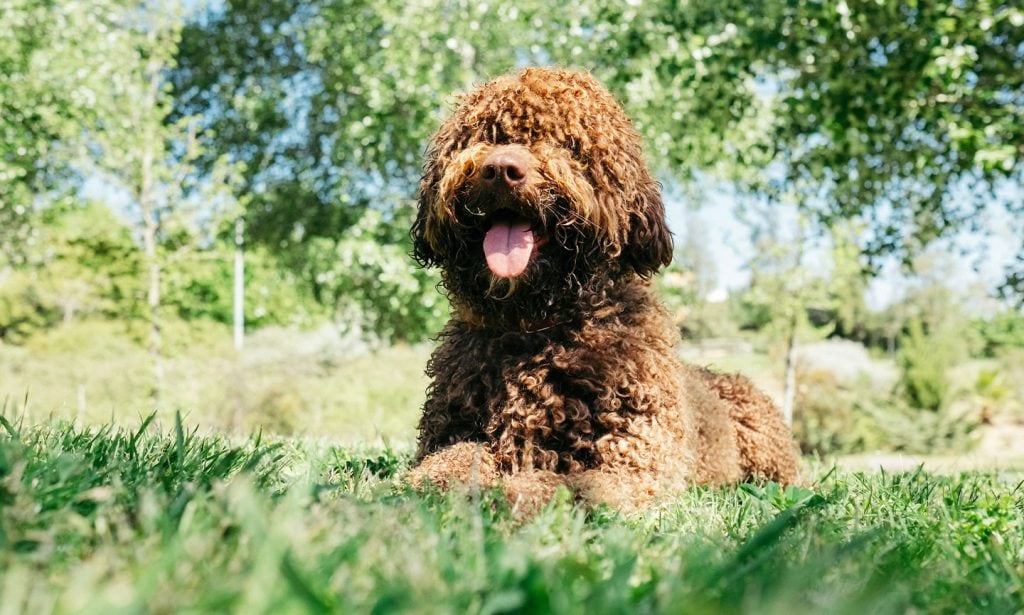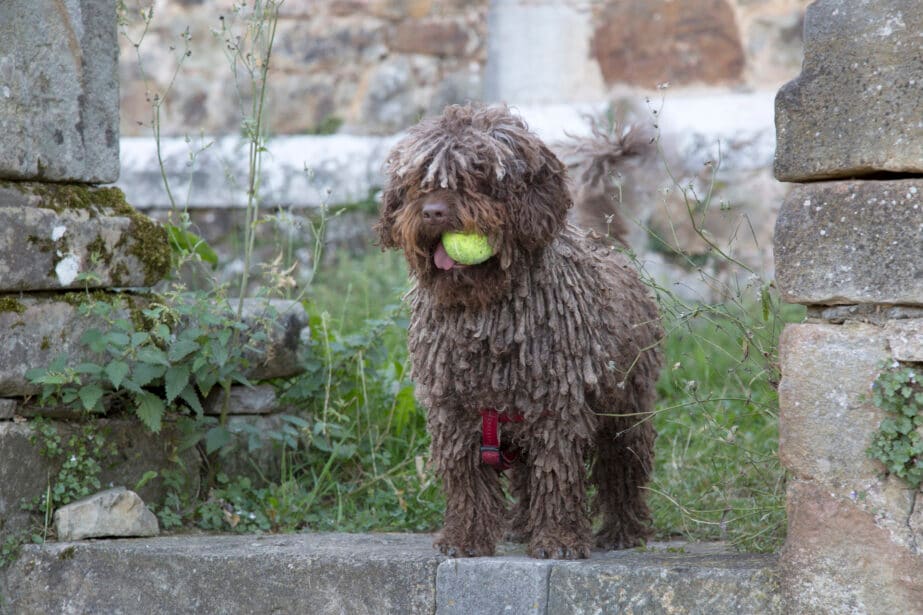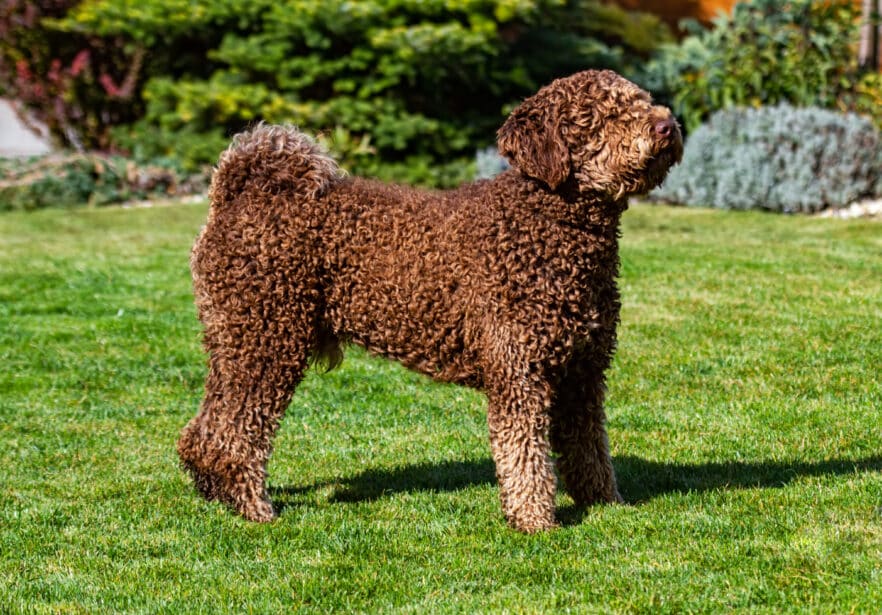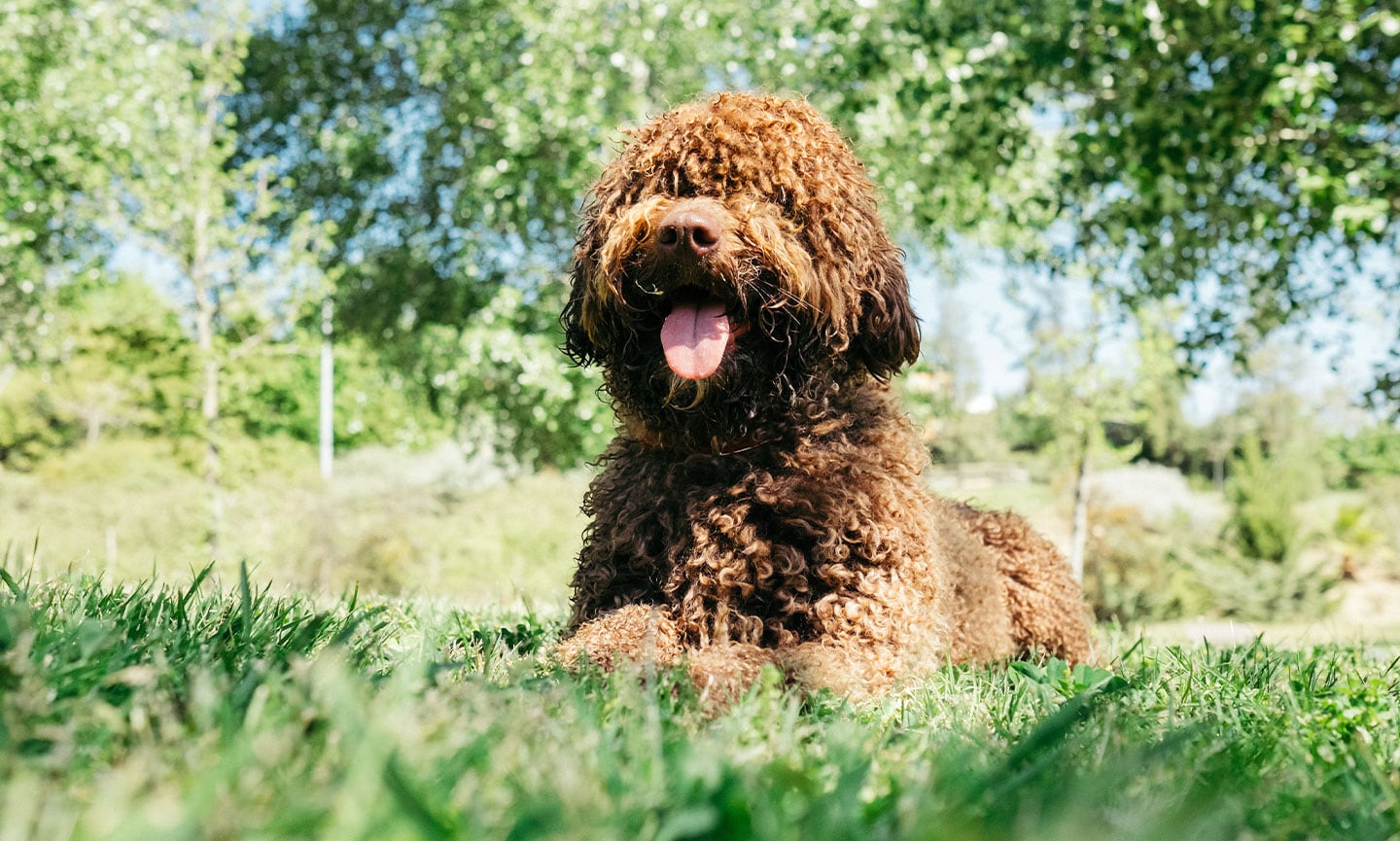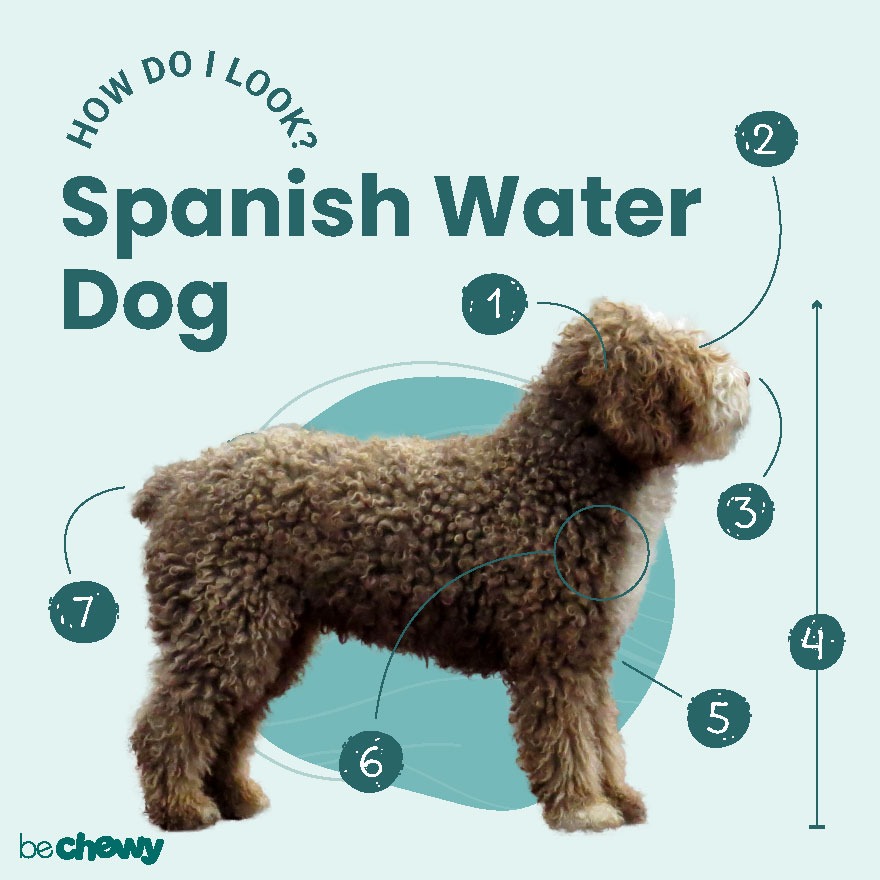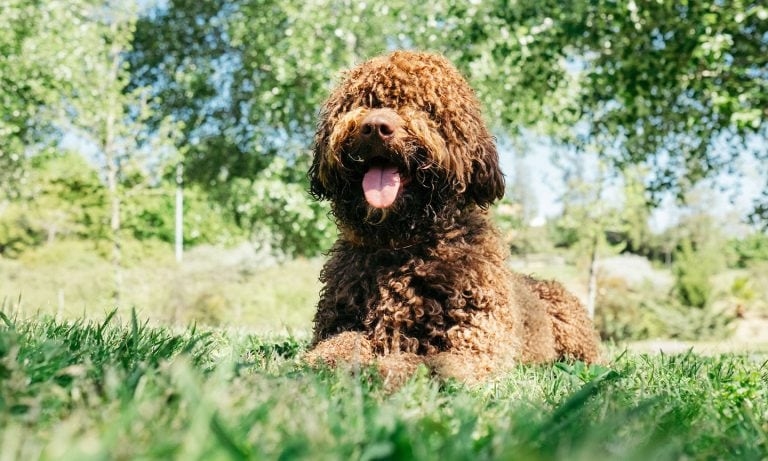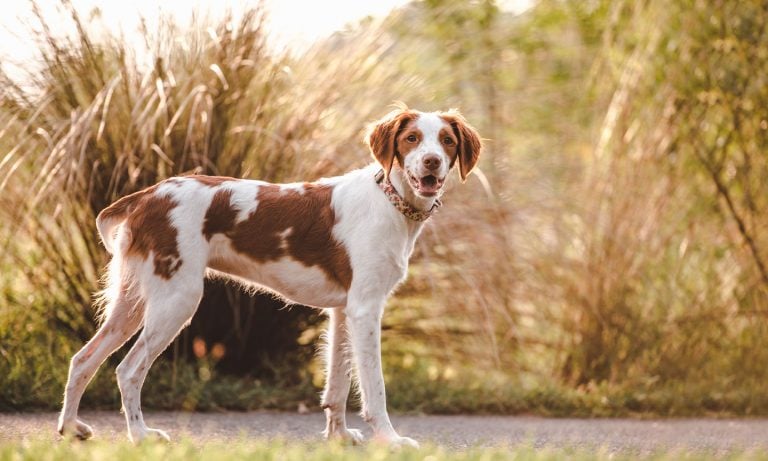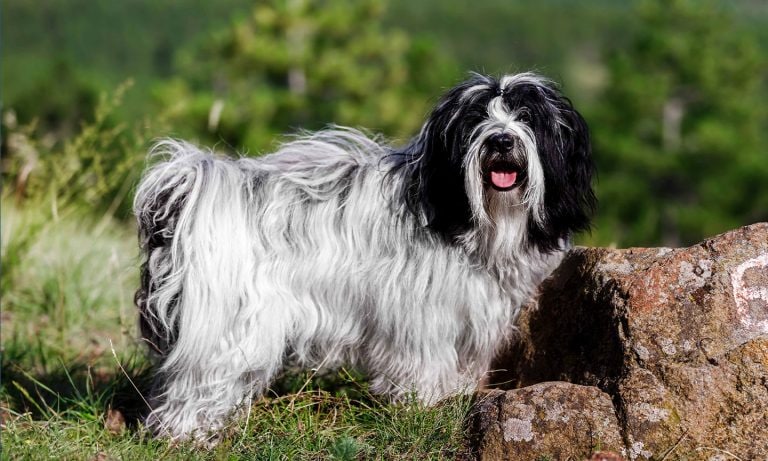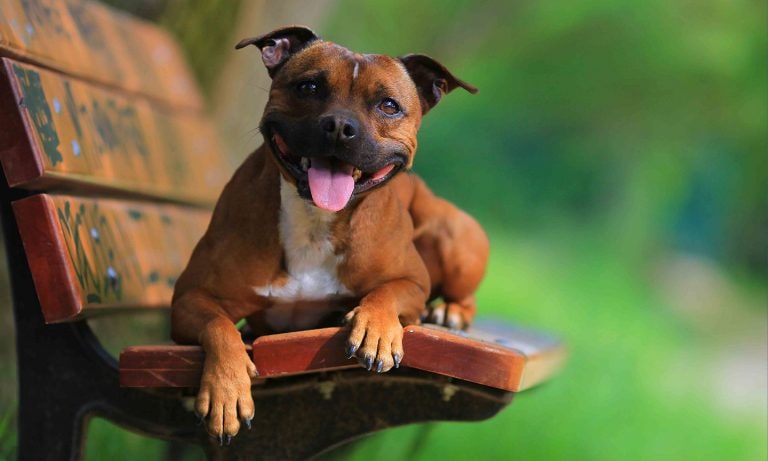If you could combine a world-class athlete, a star student and a huggable stuffed toy, you’d get the Spanish Water Dog. Loyal, playful and brainy, this breed excels at everything—especially loving their families. In fact, these active pets adore their pet parents so much, you might think of naming yours “Shadow,” because they’ll be right by your side, no matter where you are. Great if you’re always on the go, Spanish Water Dogs want daily exercise and mental stimulation. Get ready to play fetch, swim and hike—they’ll love any adventure, as long as you’re together.
Breed Snapshot
Temperament:
Fun-lovingSportyBrainyCoat Color:
BlackBlack And WhiteBrownBrown And WhiteWhite W/Black NoseWhite W/Brown NoseBeige W/Black NoseBeige W/Brown NoseBeige And White W/Black NoseBeige And White W/Brown NoseWhite And BlackWhite And BrownWhite And Beige W/Black NoseWhite And Beige W/Brown Nose
Best For
Spanish Water Dogs are loyal and versatile pups known for their love of play and adventure, especially if it involves—what else?—water. They thrive in active homes with experienced pet parents who love the great outdoors as much as they do.
Spanish Water Dog Temperament
Affectionate, highly intelligent, loyal and playful, the Spanish Water Dog embodies pretty much all of the traits you’d hope to find in a BFF. And if you like to stay active, you’re in luck—this dog’s energy levels are sky-high. They need daily exercise, for long intervals, whenever possible. Otherwise, prepare yourself for sleepless nights as your woolly pet looks for ways to release their energy, like using your favorite pair of heels as their new chew toy.
Spanish Water Dogs need socialization, or exposure to all kinds of people and social scenarios, early on in their lives—it helps to curb their natural herding instincts and tendency to shy away from strangers.
They won’t bark at every leaf that blows across your yard—we’re looking at you, Cairn Terrier—but they will alert their family when people come to the front door or when they think something’s not quite right, making them an effective watchdog. But a Spanish Water Dog’s temperament is not aggressive, nor are they prone to bite.
Originally bred for high-intelligence tasks like herding and hunting, Spanish Water Dogs benefit from mental stimulation. Engage them in a game of hide-and-seek or searching for hidden treats, and they’ll be even more enamored with you (a feat you might not have thought possible).
These dogs are happiest with an active job, whether it’s dog sports, farm chores or finding their parent’s keys. When not working, they’ll match your energy. If you’re always on your feet, they will be, too. If you are a couch potato, they’ll be snuggled beside you.
These pups are eager to please, but they’re intelligent and hard-working dogs, which means they know they’re pretty smart and may think their way is better. This can often look like an unwillingness to follow your lead—a frustrating trait for a first-time dog parent. What the Spanish Water Dog needs is an experienced, gentle, confident and patient leader to guide them.
How to Care for a Spanish Water Dog
The Spanish Water Dog breed may look like a happy-go-lucky Muppet with a ton of thick hair, but surprisingly, they don’t need much grooming or bathing to keep them looking their best. But they do need plenty of daily activities and stimulation, a balanced diet, and regular nail trimming and teeth brushing to help keep them healthy for a lifetime.
Spanish Water Dog Health
Spanish Water Dogs have a life expectancy of 12 to 14 years, and they’re also prone to a few health issues. It’s good to know what those potential health problems may be in advance, so you can keep your puppy healthy for longer. Spanish Water Dogs were formally recognized relatively recently, in 2015, so breeders are still learning about potential health issues. If you’re concerned about the health of your dog, consult with your veterinarian or contact the official AKC parent club, the Spanish Water Dog Club of America.
- Hip Dysplasia: Hip dysplasia is an inherited condition affecting how the hip bones fit together, which causes the dog pain. Prevention and treatments for the condition include lifestyle changes, joint supplements, medication and, in more severe cases, surgery. There is no genetic screening testing for hip dysplasia, but reputable breeders will participate in OFA hip screening of their lines.
- Ocular Conditions: Spanish water dogs may be prone to eye conditions such as inherited eyelash development issues (distichiasis) or glaucoma. If you notice eye symptoms like redness, cloudiness, discharge, bulging or pain, make an appointment to see your veterinarian right away.
- Progressive Retinal Atrophy (PRA): PRA is a degenerative eye disease that can eventually lead to blindness. There is no treatment for PRA, but a dog can adjust to vision loss. Genetic screening testing is available for PRA so be sure to ask your breeder.
- Hypothyroidism: This form of hypothyroidism called autoimmune thyroiditis means the body’s immune system attacks the thyroid gland. Symptoms include lethargy, hair loss and weight gain. Treatment is typically a daily oral medication. A much rarer form, congenital hypothyroidism with goiter (CHG), is also found in Spanish Water Dogs. It can be fatal and does not always respond to traditional hypothyroidism therapy. A genetic screening test is available so be sure to ask your breeder.
Spanish Water Dog History
No one really knows where the Spanish Water Dog originated. Theories include Moors bringing them from North Africa to the Iberian Peninsula or Turkish traders introducing them to Spain through merchant boats. That may explain why the Spanish Water Dog is also known as an Andalucian Turk, with other nicknames including Perro de Agua Español (Spanish for “Spanish Water Dog”), Perro Turco (Turkish dog) or a Turco Andaluz (Turkish Andalusian), and they may be related to the Portuguese Water Dogs.
Once in Spain, country farmers used Spanish Water Dogs to drive herds to pasture and hunt and retrieve fowl. A third activity involved swimming to boats to retrieve fish and fishing tackle.
Wherever they came from, one thing is certain: This ancient breed is still a hardworking, multi-purpose herding dog.
Recognized as a breed by the American Kennel Club in 2015, the Spanish Water Dog continues to find employment as sheepherders, retrievers and K-9 patrol dogs, thanks to their intelligence, agility and athleticism. They’ve also earned a reputation for being loyal companions.
So, where is the best place to find the Spanish Water Dog breed today? You can find a list of reputable breeders at the American Kennel Club’s website. Depending on the breeder, the cost of a Spanish Water Dog averages between $1,500 to $2,500. For these prices, you’re likely getting a Spanish Water Dog screened for temperament and health issues and possibly pedigree papers. You can also contact a Spanish WaterDog rescue organization to adopt a dog or scan your local animal shelters’ listings for the breed.
FAQs
Do Spanish Water Dogs shed?
No, Spanish Water Dogs do not shed a lot. This breed is both low-shed and low-dander.
Are Spanish Water Dog good family dogs?
Spanish Water Dogs can be good family dogs with proper socialization and training starting when they’re puppies.
Do Spanish Water Dogs smell?
No, Spanish Water Dogs are not naturally smelly dogs. They do have lots of energy, however, meaning they will likely play in mud, grass and dirt or take a dip in any body of water—murky or not—which can make them dirty and/or smelly.
Are Spanish Water Dogs smart?
Spanish Water Dogs are extremely smart. As herding dogs, they are alert, diligent and always looking to please. As a pet parent, you’ll need to keep their minds busy with tasks and activities in order for the Spanish Water Dog breed to thrive.
Are Spanish Water Dogs rare?
Yes, Spanish Water Dogs are considered a rare dog breed. In fact, there are only a handful of breeders in North America. Folks looking for a responsible breeder should refer to the Spanish Water Dog Club of America breeders list or find reputable breeders at the American Kennel Club.
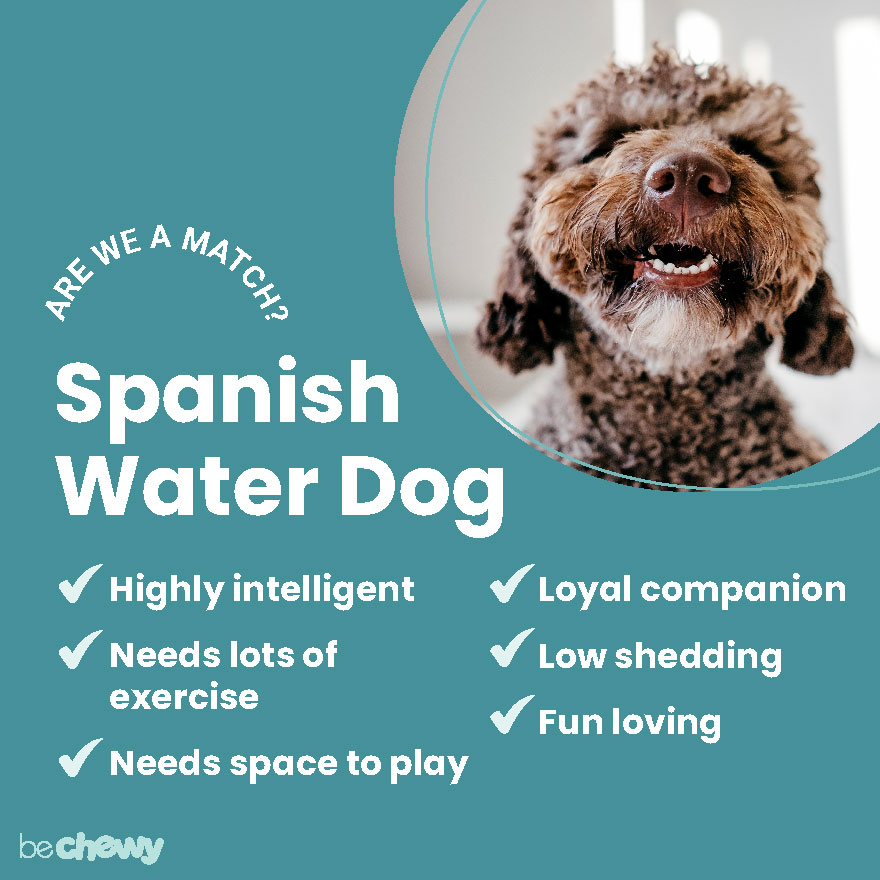
Top Takeaways
Spanish Water Dogs are energetic, loyal dogs who are perfect companions for experienced and active pet parents. Yes, they need lots of mental and physical stimulation to stay happy, but you’ll save plenty of time on grooming. These fluffy friends will reward your patience with love and devotion.
Expert input provided by veterinarian Dr. Rachel Barrack, DVM, CVA, CVCH founder of concierge veterinary practice Animal Acupuncture, Lisa Harper, AKC Breeder of Merit; SWD owner, breeder and competitor since 2000 and Amber Walker, KPA-CTP, zoologist, and owner of Animal Intuitions.
Breed characteristic ratings provided by veterinarian Dr. Sarah J. Wooten, DVM, CVJ, a veterinarian at Sheep Draw Veterinary Hospital in Greeley, Colorado; dog trainer and behavior consultant Irith Bloom, CPDT-KSA, CBCC-KA, CDBC, owner of The Sophisticated Dog, LLC, in Los Angeles; and certified animal behavior consultant Amy Shojai, CABC, in Sherman, Texas.
The health content was medically reviewed by Chewy vets.
Photo credit for “How do I look?” by wikimedia.org
Top Spanish Water Dog Names
These are the top Spanish Water Dog names as chosen by Chewy's pet parents!
Female Names
- Luna
- Izzy
- Rio
- Maya
- Willow
- Lucia
- Lucy
- Tia
- Asli
- Josie
Male Names
- Ziggy
- Arlo
- Milo
- Rigsby
- King Kahlua
- Stout
- Mac
- Luca
- Louie
- Watson
Share:
